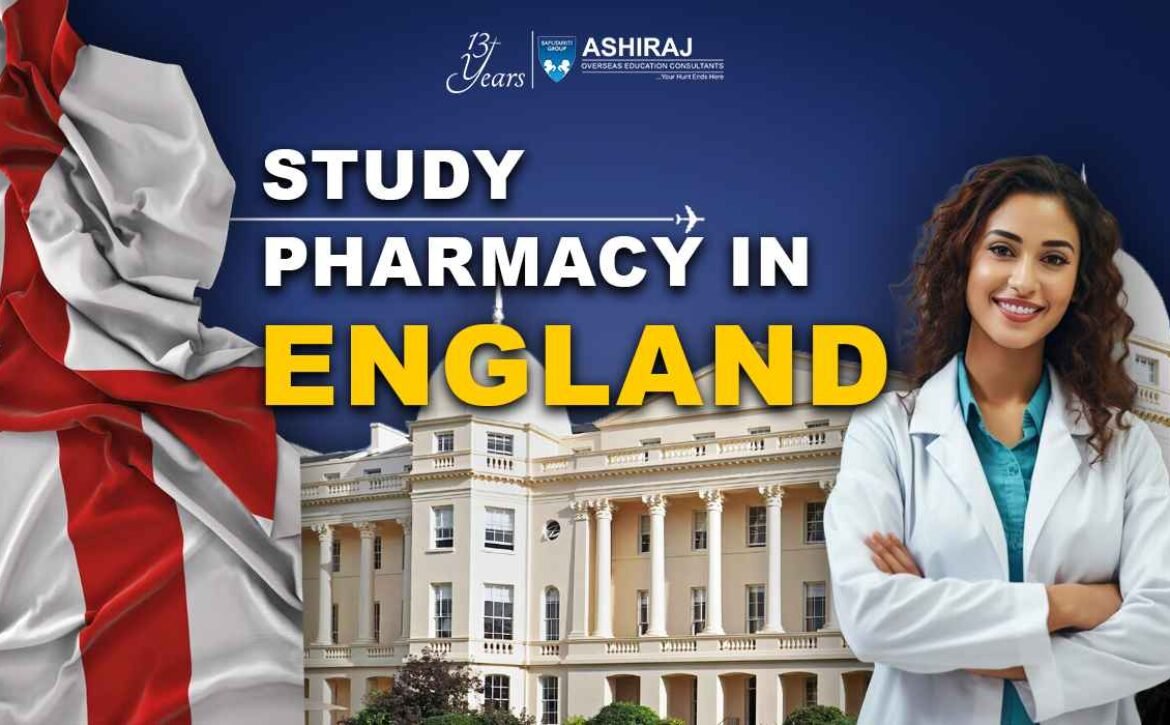
Pharmacy in England
Pharmacy in England encompasses a multifaceted landscape deeply intertwined with the nation’s healthcare system. Renowned for its stringent regulations and commitment to patient care, pharmacy practice in England epitomizes professionalism and precision. From community pharmacies dotting local high streets to hospital pharmacies delivering specialized care, the sector is indispensable in safeguarding public health. Pharmacists in England undergo rigorous training, equipping them with the expertise to dispense medications safely, offer health advice, and even administer vaccinations. Beyond dispensing prescriptions, they serve as accessible healthcare advisors, empowering individuals to make informed decisions about their well-being.
Within the dynamic realm of Pharmacy in England, continual evolution is evident, driven by advancements in pharmaceutical science and shifts in healthcare policies. Collaboration between pharmacists and other healthcare professionals is pivotal, fostering integrated care models aimed at optimizing patient outcomes. Furthermore, the profession is increasingly embracing technological innovations, from digital prescriptions to automated dispensing systems, enhancing efficiency and accessibility. As England’s healthcare landscape evolves, pharmacy remains a cornerstone, delivering vital services and contributing to the nation’s collective health and well-being.
Why to Study Pharmacy in England?
- World-Class Education: Pharmacy programs in England are renowned for their high academic standards, offering comprehensive training in pharmaceutical sciences and clinical practice.
- Cutting-Edge Research Opportunities: Students have access to state-of-the-art facilities and research opportunities, enabling them to engage in groundbreaking research alongside leading experts in the field.
- Internationally Recognized Qualifications: A pharmacy degree from England holds global recognition, opening doors to career opportunities worldwide.
- Clinical Experience: Engage in hands-on clinical placements in various healthcare settings, including community pharmacies, hospitals, and primary care centers, gaining invaluable practical experience.
- Diverse Career Paths: A pharmacy degree equips graduates with a versatile skill set, preparing them for diverse career paths such as community pharmacy practice, hospital pharmacy, pharmaceutical industry roles, academia, and research.
- Professional Development: Continuous professional development is ingrained within the curriculum, ensuring graduates remain up-to-date with advancements in the field and meet evolving regulatory standards.
- Ethical and Patient-Centered Practice: Pharmacy education in England emphasizes the importance of ethical practice and patient-centered care, instilling values essential for a successful and fulfilling career in healthcare.
- Thriving Healthcare System: England’s robust healthcare system provides ample opportunities for pharmacists to make meaningful contributions to public health and patient care.
Embarking on a pharmacy education journey in England offers a pathway to a rewarding and impactful career in the dynamic field of healthcare.
Top Universities to Study Pharmacy in England
University | QS World University Ranking 2023 | Type of University | Average Annual Fees | Programs Offered |
University of Oxford | 1 | Public | £9,250 – £11,100 | MPharm, PhD in Pharmacy, Research Programs |
University of Cambridge | 2 | Public | £9,250 – £11,100 | MPharm, PhD in Pharmacy, Research Programs |
Imperial College London | 5 | Public | £9,250 – £11,100 | MPharm, PhD in Pharmacy, Research Programs |
University College London | 10 | Public | £9,250 – £11,100 | MPharm, PhD in Pharmacy, Research Programs |
King’s College London | 25 | Public | £9,250 – £11,100 | MPharm, PhD in Pharmacy, Research Programs |
When considering pursuing pharmacy education in England, aspiring students are often faced with the daunting task of selecting the right university. Here’s a concise breakdown of the top five universities for Pharmacy in England, based on the QS World University Rankings 2023:
- University of Oxford: Renowned for its academic excellence, Oxford offers a range of pharmacy programs alongside opportunities for research in the field.
- University of Cambridge: With a strong emphasis on research and innovation, Cambridge provides comprehensive pharmacy education programs catering to diverse interests.
- Imperial College London: Known for its cutting-edge research facilities, Imperial College offers rigorous pharmacy programs preparing students for a dynamic career in the field.
- University College London: UCL boasts a rich history in pharmaceutical education and research, offering a supportive environment for aspiring pharmacists to thrive.
- King’s College London: With a focus on interdisciplinary learning, King’s College provides holistic pharmacy education programs tailored to meet the demands of modern healthcare.
Course Curriculum for Pharmacy in England
- Foundational Sciences: The curriculum typically begins with foundational courses in chemistry, biology, and anatomy, providing students with a strong scientific understanding essential for pharmacy practice in England.
- Pharmacology and Therapeutics: Students delve into the study of drug actions, interactions, and therapeutic uses, gaining insights into how medications affect the human body and how to optimize their use for patient care.
- Pharmacy Practice Skills: Practical skills are honed through hands-on training in dispensing medications, patient counseling, and medication management, preparing students for real-world scenarios in community and clinical settings.
- Clinical Placements: Engage in supervised clinical placements in various healthcare settings, including hospitals, community pharmacies, and primary care centers, allowing students to apply theoretical knowledge in practical settings.
- Ethics and Legal Aspects: Explore the ethical and legal frameworks governing pharmacy practice in England, emphasizing the importance of patient confidentiality, professional conduct, and adherence to regulations.
- Professional Development: The curriculum includes modules on professional development, equipping students with communication skills, teamwork abilities, and leadership qualities necessary for successful pharmacy careers in England.
- Research Opportunities: Opportunities for research projects and dissertation work are often integrated into the curriculum, allowing students to explore areas of interest and contribute to advancements in the field of pharmacy in England.
Eligibility Criteria & Admission Requirements for MS in Pharmacy in England
- Language Proficiency: Applicants must demonstrate proficiency in English by providing scores for either the IELTS or TOEFL exams. Typically, a minimum score of 6.5 on IELTS or 90 on TOEFL is required.
- Standardized Tests: Some universities may require scores from either the GRE or GMAT exams to assess applicants’ academic readiness. A competitive score in either test is typically expected, although specific requirements may vary.
- Academic Certificates: Applicants must provide academic transcripts and certificates demonstrating completion of prerequisite courses or degrees, such as a bachelor’s degree in pharmacy or related field.
- Work Experience: While not always mandatory, relevant work experience in pharmacy or healthcare settings may strengthen an application. Applicants are encouraged to highlight any relevant professional experience in their application materials.
- Passport & Student Visa: International students must have a valid passport and obtain a student visa to study in England. The visa application process typically requires proof of acceptance from a recognized institution and sufficient funds to cover tuition and living expenses.
Exam | Minimum Score |
IELTS | 6.5 |
TOEFL | 90 |
GRE | Varies |
GMAT | Varies |
Meeting the eligibility criteria is crucial for prospective students aiming to pursue pharmacy education in England. By fulfilling these requirements, applicants can enhance their chances of admission to reputable pharmacy programs in the country.
Documents Required for Studying Pharmacy in England
- Passport: A valid passport is essential for international students applying to study pharmacy in England, serving as proof of identity and nationality.
- Letters of Recommendation (LOR): Most pharmacy programs require applicants to submit two or more letters of recommendation from academic or professional references who can attest to their qualifications and character.
- Statement of Purpose (SOP): An SOP provides insight into the applicant’s motivations, career goals, and reasons for pursuing pharmacy education in England, allowing admissions committees to assess their suitability for the program.
- Curriculum Vitae (CV): A comprehensive CV outlines the applicant’s educational background, work experience, skills, and achievements, providing a snapshot of their qualifications and accomplishments.
- Official High School Transcripts/Certificates: Academic transcripts and certificates from high school or secondary education institutions are required to demonstrate academic proficiency and eligibility for higher education studies in pharmacy.
- Work Experience Certificate: If applicable, applicants should provide a certificate documenting any relevant work experience in pharmacy or healthcare settings, showcasing their practical skills and professional expertise.
- Proof of Financial Resources: International students must demonstrate sufficient financial resources to cover tuition fees, living expenses, and other costs associated with studying pharmacy in England, typically through bank statements or sponsorship letters.
Ensuring the timely submission of these documents is crucial for prospective students seeking admission to pharmacy programs in England. By fulfilling these requirements, applicants can present a strong and comprehensive application package to their desired institutions.
Admission Process for Pharmacy in England
- Research: Begin by researching pharmacy programs offered by universities in England, considering factors such as reputation, curriculum, and location to find the best fit for your academic and career goals.
- Application: Complete the university’s online application form for the pharmacy program, ensuring all required information and documents are accurately provided.
- Document Submission: Compile and submit necessary documents, including academic transcripts, standardized test scores (if required), letters of recommendation, statement of purpose, curriculum vitae, and proof of identity.
- English Proficiency: If you’re an international student, ensure you meet the English language proficiency requirements by providing scores from exams like IELTS or TOEFL.
- Evaluation: Admissions committees evaluate applications based on academic performance, standardized test scores, relevant experience, letters of recommendation, and the statement of purpose.
- Interview (if applicable): Some universities may require an interview as part of the admissions process to assess your suitability for the pharmacy program.
- Offer Acceptance: Upon receiving an offer of admission, carefully review the terms and conditions before accepting it to secure your place in the pharmacy program.
Navigating the admission process for pharmacy programs in England requires careful planning, attention to detail, and thorough preparation. By following these steps diligently, prospective students can increase their chances of securing admission to their desired pharmacy program in England.
“Education is the most powerful weapon which you can use to change the world.”
Nelson Mandela
Cost of Pharmacy Course in England
- Tuition Fees: Tuition fees for pharmacy programs in England typically range from £9,250 to £25,000 per year for international students, depending on the university and program specifics.
- Accommodation: The cost of accommodation varies widely based on location and type. On-campus housing may range from £4,000 to £8,000 per year, while private rentals can be higher, especially in cities like London.
- Living Expenses: Monthly living expenses, including food, transportation, and personal costs, generally range from £800 to £1,200. This can vary based on lifestyle and location.
- Study Materials: Books, lab equipment, and other study materials can cost approximately £500 to £1,000 per year. Some programs may have additional fees for specialized materials.
- Healthcare: International students need to pay an immigration health surcharge, which is around £470 per year, to access the National Health Service (NHS).
- Travel: Budget for travel expenses, including flights to and from England and local transportation. Annual travel costs can vary but typically range from £500 to £1,500.
- Miscellaneous Costs: Other costs may include personal expenses, leisure activities, and insurance, adding another £500 to £1,000 annually.
Understanding the cost of studying pharmacy in England is crucial for prospective students to budget effectively and ensure they have the necessary financial resources to support their education and living expenses throughout their studies.
Scholarships for Pharmacy Courses in England
Scholarship Name | Amount | Eligibility Criteria | Application Deadline |
Chevening Scholarships | Full tuition + stipend | International students, leadership potential | November |
Commonwealth Scholarships | Full tuition + stipend | Students from Commonwealth countries | December |
Gates Cambridge Scholarship | Full tuition + stipend | International students, academic excellence | January |
University of Oxford Clarendon Fund | Full tuition + stipend | All graduate applicants to Oxford | January |
UCL Global Masters Scholarship | Up to £15,000 | International students, academic merit | April |
King’s International Scholarship | Up to £25,000 | International students, financial need | March |
Studying Pharmacy in England can be financially demanding, but various scholarships are available to support international students. Here are some prominent scholarships for Pharmacy in England:
- Chevening Scholarships: Covering full tuition and a monthly stipend, these scholarships are awarded to international students who demonstrate leadership potential. The application deadline is in November.
- Commonwealth Scholarships: These provide full tuition and a stipend for students from Commonwealth countries. Applications are typically due in December.
- Gates Cambridge Scholarship: This prestigious scholarship covers full tuition and a stipend for international students showcasing academic excellence. The application deadline is in January.
- University of Oxford Clarendon Fund: Available to all graduate applicants at Oxford, this fund covers full tuition and a stipend. The application deadline is in January.
- UCL Global Masters Scholarship: Offering up to £15,000, this scholarship is awarded based on academic merit to international students. The application deadline is in April.
- King’s International Scholarship: Providing up to £25,000, this scholarship is aimed at international students with financial need. The application deadline is in March.
These scholarships can significantly ease the financial burden of studying Pharmacy in England, allowing students to focus on their academic and professional goals.
Career Opportunities After Pharmacy in England
Job Profile | Average Salary | Description |
Community Pharmacist | £35,000 – £45,000 | Dispenses medications, provides health advice in local pharmacies. |
Hospital Pharmacist | £38,000 – £48,000 | Works in hospital settings, involved in patient care and medication management. |
Clinical Pharmacist | £40,000 – £55,000 | Specializes in optimizing medication use in clinical settings. |
Pharmaceutical Scientist | £30,000 – £50,000 | Conducts research and development of new drugs and therapies. |
Regulatory Affairs Officer | £32,000 – £55,000 | Ensures compliance with regulations in the pharmaceutical industry. |
Medical Sales Representative | £25,000 – £45,000 | Promotes pharmaceutical products to healthcare professionals. |
Academic Researcher | £30,000 – £50,000 | Conducts academic research and teaches at universities. |
Industrial Pharmacist | £35,000 – £60,000 | Works in the pharmaceutical industry, involved in production and quality control. |
Career opportunities after studying Pharmacy in England are diverse and lucrative. Here are some potential career paths along with their average salaries:
- Community Pharmacist: With an average salary ranging from £35,000 to £45,000, community pharmacists dispense medications and provide health advice in local pharmacies.
- Hospital Pharmacist: Earning between £38,000 and £48,000, hospital pharmacists work in medical settings, focusing on patient care and medication management.
- Clinical Pharmacist: Clinical pharmacists earn between £40,000 and £55,000, specialising in optimising medication use in clinical environments.
- Pharmaceutical Scientist: These professionals, earning between £30,000 and £50,000, engage in research and development of new drugs and therapies.
- Regulatory Affairs Officer: Ensuring compliance with industry regulations, regulatory affairs officers earn between £32,000 and £55,000.
- Medical Sales Representative: Promoting pharmaceutical products to healthcare professionals, medical sales representatives earn between £25,000 and £45,000.
- Academic Researcher: Conducting research and teaching at universities, academic researchers earn between £30,000 and £50,000.
- Industrial Pharmacist: Working in the pharmaceutical industry, industrial pharmacists are involved in production and quality control, earning between £35,000 and £60,000.
Pharmacy in England offers a wide range of career opportunities with competitive salaries, allowing graduates to pursue fulfilling and impactful careers in various sectors.
Frequently Asked Questions About Pharmacy in England
Entry requirements typically include high school transcripts with strong grades in science subjects, proof of English proficiency (e.g., IELTS or TOEFL scores), and relevant standardized test scores (e.g., SAT, ACT). Some universities may also require an interview or additional entrance exams.
An undergraduate MPharm (Master of Pharmacy) degree usually takes four years to complete. This is followed by a one-year pre-registration training period and a final exam to become a registered pharmacist.
Career opportunities include roles such as community pharmacist, hospital pharmacist, clinical pharmacist, pharmaceutical scientist, regulatory affairs officer, medical sales representative, academic researcher, and industrial pharmacist.
The average salary of a pharmacist in England varies by role and experience. Community pharmacists typically earn between £35,000 and £45,000, while hospital pharmacists earn between £38,000 and £48,000. Clinical pharmacists can earn between £40,000 and £55,000.
Yes, various scholarships are available for international students, including Chevening Scholarships, Commonwealth Scholarships, Gates Cambridge Scholarship, and university-specific scholarships like the UCL Global Masters Scholarship and King’s International Scholarship.
Key documents include a valid passport, letters of recommendation (LOR), a statement of purpose (SOP), a curriculum vitae (CV), official high school transcripts, work experience certificates (if applicable), and proof of financial resources.
Tuition fees for international students range from £9,250 to £25,000 per year. Additional costs include accommodation (£4,000 – £8,000 per year), living expenses (£800 – £1,200 per month), study materials, and healthcare.
The admission process involves researching programs, completing online applications, submitting required documents, demonstrating English proficiency, undergoing evaluation by admissions committees, potentially participating in interviews, and accepting offers.
Yes, pharmacy programs in England include practical training through clinical placements in hospitals, community pharmacies, and primary care settings, allowing students to apply theoretical knowledge in real-world scenarios.
International students can work part-time during their studies, typically up to 20 hours per week during term time and full-time during holidays, provided they have the appropriate visa and work permissions.




